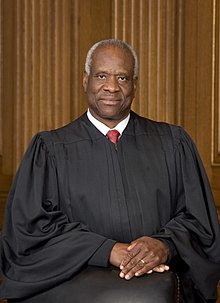Recent Developments in the Life of Clarence Thomas

Introduction to Clarence Thomas
Clarence Thomas, one of the longest-serving justices on the U.S. Supreme Court, has played a crucial role in shaping American jurisprudence since his appointment in 1991. His tenure has been marked by significant conservative rulings, particularly on issues such as affirmative action, gun rights, and religious freedoms. With ongoing discussions about the Supreme Court’s integrity and its members’ conduct, recent events surrounding Thomas highlight the importance of judicial ethics in today’s legal climate.
Ethical Concerns and Recent Controversies
In recent months, Clarence Thomas has faced scrutiny over allegations regarding his financial disclosures. Reports by various media outlets have raised questions about his non-disclosed relationships with influential business figures and potential conflict of interest scenarios. Particularly, the relationship with billionaire Harlan Crow, who has provided financial support to Thomas without proper disclosures, has alarmed ethics watchdogs and sparked public debates about judicial accountability.
Additionally, in April 2023, a report from the ProPublica revealed extensive travel and luxury gifts received by Thomas, which were not reported as required by law. These revelations have led to calls from advocates for judicial reform, urging Congress to implement stricter oversight on Supreme Court justices.
Impact on Public Perception and Court Politics
The controversies surrounding Thomas have not only impacted his personal brand but have also had significant implications for the Supreme Court’s overall public perception. With trust in the judiciary at a historical low, his situation raises questions about the independence of the court and the ethical standards to which justices are held.
As public trust and scrutiny increase, the implications for future court decisions could be substantial, especially considering the Supreme Court’s pivotal role in societal issues. Thomas’s decisions often reflect a broader conservative agenda, and as a key vote on many contentious issues, his continued eligibility has critical importance for future judicial rulings.
Conclusion: What Lies Ahead for Clarence Thomas?
Going forward, the developments surrounding Clarence Thomas will likely remain a prominent topic of discussion in legal and political circles. The combination of increasing calls for transparency, potential reforms in judicial ethics, and the impact of public opinion could shape how justices operate in the future. The situation serves as a reminder of the complex balance between maintaining judicial independence and accountability, key elements for the health of democracy and the rule of law in the United States.









